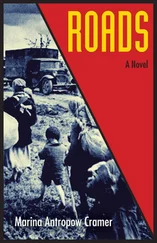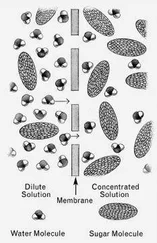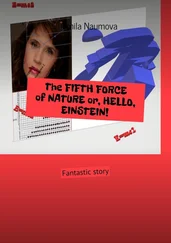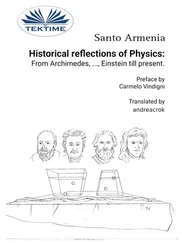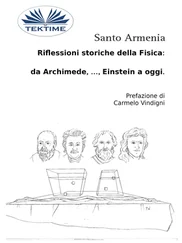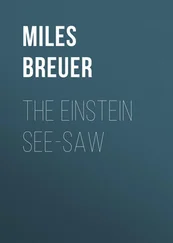Tunnel Maker, with a rising sense of excitement, decided that the case for a signal from a high civilization was convincing, that no plausible argument could be made for a natural phenomenon. This had to be the work of intelligence! Somewhere a great machine had been fabricated by intelligent beings and was accelerating protons or electrons and bringing them into collision. As the beings gained experience with its use, the machine was being steadily improved and the rate and magnitude of energy densities achieved were rising. In the neighboring Bubble Universe some alien race was doing high-energy physics experiments.
His sense of elation shifted to concern. As well as opportunity, there was a serious responsibility here. There was a high probability that the high civilization in that Bubble was now in grave danger from the Hive. The civilization must be contacted and given aid. The magnitude of the energy density concentrations had been more than sufficient to initiate his summoning appliance, and they were undoubtedly sending transdimensional signals that were attracting attention elsewhere in the Cosmos. The Hive might soon attempt to destroy their world. The race for the survival of a civilization was on.
Tunnel Maker, feeling some urgency now, accessed the neural node that would assemble the Concantation of Individuals. Huge resources would have to be marshaled in a short timescale. A Bridge must be opened. An emerging high civilization was in great danger and must be contacted and helped by the Makers. Time was short, and this opportunity must not be missed.
IT WAS A PLEASANTLY WARM SPRING DAY IN MEYRIN. Roger Coulton had decided to sit outside under the pale green of the trees outside the CERN cafeteria as he ate his lunch. He glanced at the croquet lawn in front of him. The grass had been transformed from an ugly brown to an emerald green in the past few weeks, and later this afternoon the serious CERN devotees would be there playing their quaint game, like Alice and the Queen of Hearts.
Through the trees he could see the upthrust rock slab of the Saleve and behind it other mountains surrounding Geneva. The sun was shining, and there was no wind to disturb his papers.
He frowned at the symbols on the pages of the laser-printed Mathematica notebook before him on the round white table. Neatly typeset in a subdialect of the language of mathematics, they laid out the anatomy of a failed idea. For the past two months Roger had felt like a drowning man trying desperately to stay afloat. He had been grasping for some variation of his basic approach that might save his new procedure for calculating particle masses from first principles. He was becoming very sure that his efforts were futile. His new procedure was beautiful, elegant, brilliant, and wrong.
In theoretical physics it was not unusual to spend time exploring a few blind alleys. That was part of the game. But this particular idea had looked so promising. In his recent seminars he had been able to use it to impress his colleagues. He was about to move to a new job, a big upward step, and his newly elevated position was due in no small part to the impression made in his interview seminar discussing his new approach. He still could not quite bring himself to believe that his beautiful idea was wrong.
A shadow fell across the papers and remnants of his meal. Roger squinted up at a tall broad-shouldered figure outlined in the yellow alpine sunlight and the green of translucent leaves.
“Hello,” the man said. “I believe you’re Roger Coulton. I was at the talk you gave at Les Houches last March. Very nice work.” The face was vaguely familiar. He had sandy blond hair, a gray-streaked blond beard, and the rugged tan characteristic of the high-altitude UV-laden sunlight of mountain climbs. His accent marked him as American, probably from the Midwest. He was holding a marbled-white CERN cafeteria tray and smiling. “I’m George Griffin. I’m an experimentalist with the LEM collaboration at the Superconducting Super Collider. You’re obviously working, and I don’t want to bother you, but I didn’t want to pass up the opportunity to say hello.”
Roger waved his hand in a gesture of welcome and moved his backpack from the other chair. “Please sit down, George,” he said, feeling somewhat relieved to be distracted from his troubles. “I was not, I regret to say, doing anything useful.” He gathered his papers and put them back into the pack. He glanced around the outdoor seating area of the cafeteria. It was becoming crowded, and he was alone at this table. Roger liked to talk to experimentalists. It was a good way of hearing the news about experimental results early, and they usually didn’t want to discuss the details of his recent theoretical work.
George sat down across from him, poured beer from a brown Kronenberg bottle into a glass, and took an appreciative sip. “It’s a great cafeteria that serves beer at lunchtime,” he said. “The good folk of Ellis County, Texas, would never permit such civilized customs, even if they were allowed by the uptight image-conscious Department of Energy bureaucrats. Imagine the reports their safety task forces would write about the hazards of alcohol in the workplace.”
Roger shook his head. “The U.K. science bureaucracy stands second to none in the tediousness of their safety,” he said. “I moved here from England as soon as the opportunity was offered, and I’ve lived here for three years. The physics is excellent, the pay is twice what I’d get in the U.K., the food is wonderful, and the scenery is beautiful.”
“But you’ll soon be leaving CERN to learn about the Waxahachie way of life at first hand,” George said. “You’ve accepted the senior fellow position with the SSC’s Particle Theory Group? I’m surprised that you were willing to move.” He waved his hand toward the south, where the Alps, punctuated by Mont Blanc, ringed Geneva.
I was a bit surprised myself, Roger thought. “It wasn’t an easy decision. But ultimately physics decided it. I realized that the CERN LHC simply does not have enough energy to address the most interesting physics questions. Now that the SSC is at last coming into operation, it’s where the action is for theorists as well as experimentalists, so I’m going there.” And hoping the change will blast me out of my present morass, he thought.
“Are you leaving soon?” George asked.
“I move to Texas in a few days,” said Roger. “My boxes of books and papers are already on their way. It’s going to be an adventure for me, living in the States. Especially in Texas. I misspent my early youth watching old cowboy videos.”
“It’s going to require a certain change in lifestyle,” George said. “Are you married? Where do you live here at CERN?”
“I’m single,” said Roger. “In the U.K. I had rooms at Cambridge before coming to CERN.” Roger felt a twinge that might have been guilt. He never mentioned King’s Lynn, where he’d spent the first ten years of his life in near poverty. “Now I have a nice flat in a housing complex in St. Genis, across in France. It’s near a wooded area with a path beside a stream where I like to walk, and my flat has a pleasant view of the Jura Mountains. As a theorist it would have appealed to me to live in a town named Thoiry, which is just down the road, but I couldn’t afford the rents there. How’s the housing situation at the SSC? Where do people live?”
“Hmm,” George mused. “How can I explain Texas? Let’s consider it as a problem in conformal mapping. Instead of Geneva you have Dallas — very tall buildings, like Geneva a banking and insurance center, a few small lakes but no big ones, no mountains at all or even significant hills. It’s very flat, with rich black topsoil over limestone. Good farmland, especially for growing cotton. Can’t say much for the wine.
Читать дальше

